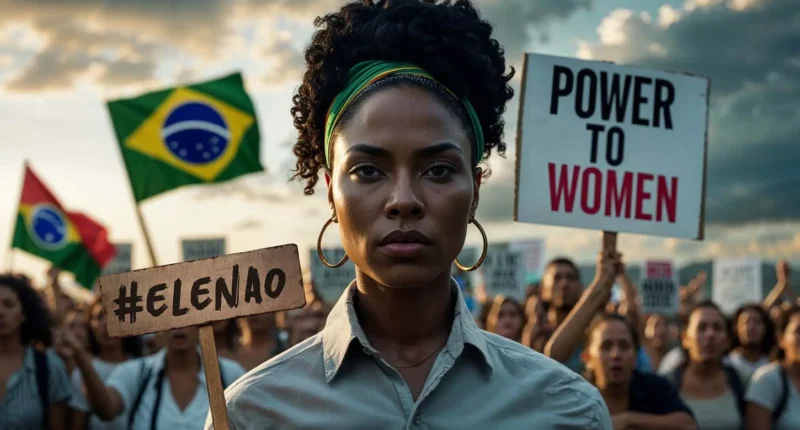Brazilian women who are against Bolsonaro: the movement against him and the rise of Black women in politics.
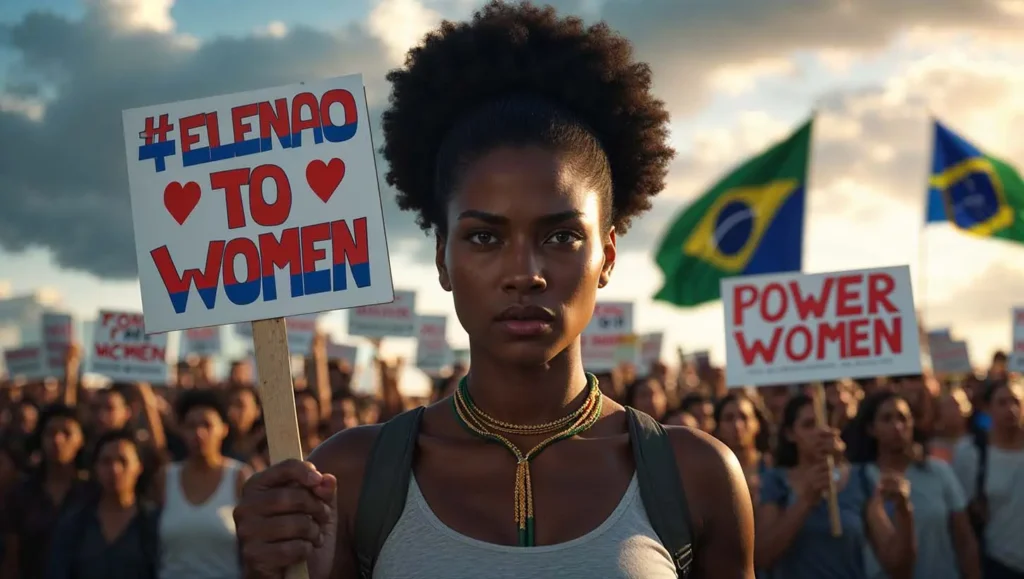
Brazil’s women, especially Black women, are getting more involved in politics these days. This has led to more women being appointed to political positions and a more organized fight against far-right ideas. This movement became very popular after Jair Bolsonaro took office. And it has continued to have an impact on Brazilian democracy. Still, the story is more complicated than a simple one of victory.
The #NotHim movement and what women are doing to fight Bolsonaro
In 2018, the fight against Jair Bolsonaro’s presidential campaign turned into one of the most important political movements. I was led by women in recent Brazilian history. A lot of Brazilian women spoke out against the far-right presidential candidate before the election on October 7, 2018. In what could be called an email war. People who are against Bolsonaro’s campaign first showed up on social media. Where the hashtag #EleNao (#NotHim) became a rallying cry.
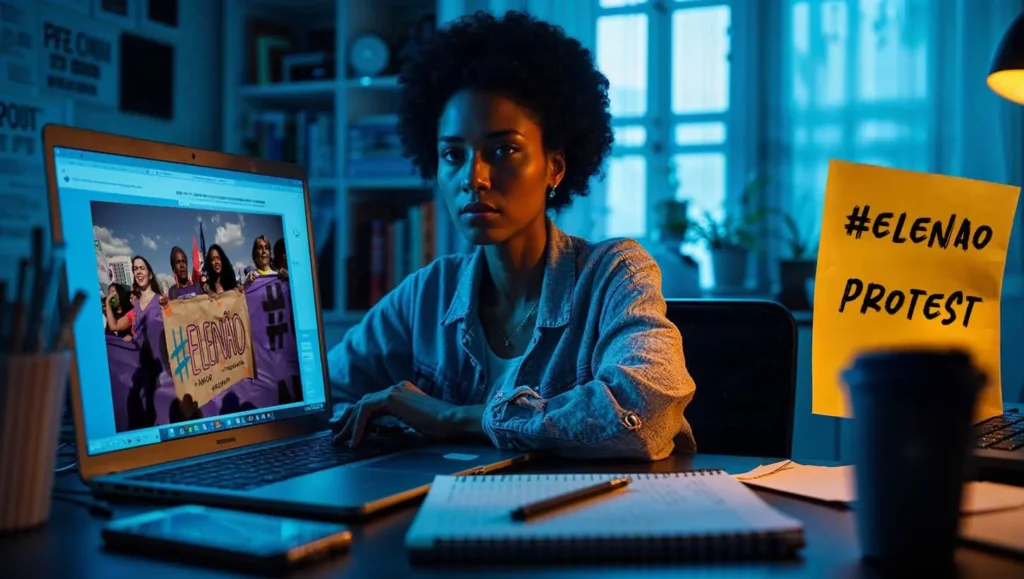
The digital campaign did really well on a lot of different platforms. The #EleNao tag had been used almost 200,000 times by Thursday morning of campaign week on Instagram. Even more people became interested in #EleNao on Twitter.
They kept track of it from Friday, September 14, 2018, to Sunday, September 16, 2018. And found more than 193,000 references. During the same time period, 152,000 tweets used the hashtag #EleNunca, which means “never him.”
TV hosts, reporters, and actresses from Brazil who were well-known supporters of the cause. They used their large social media followings to spread the word. A tweet from actress Deborah Secco, who has 3.4 million followers. Said, “EleNao is not just about politics”. It has to do with ethics. For her five million Instagram Stories followers, Sasha Meneghel wrote that we need to “change the minds of undecided voters”. And that a Bolsonaro victory would be “dangerous retrogression”. She is the daughter of famous children’s TV host Xuxa Meneghel.
People are taking to the streets and holding protests.
The Internet opposition movement grew into huge protests all over Brazil. Protests against Bolsonaro were led by women in cities all over the country. Even in big ones like São Paulo and Brasilia, the capital. Bolsonaro’s home city, Rio de Janeiro, had protesters gather in the Centro area to say they didn’t agree with his divisive campaign.
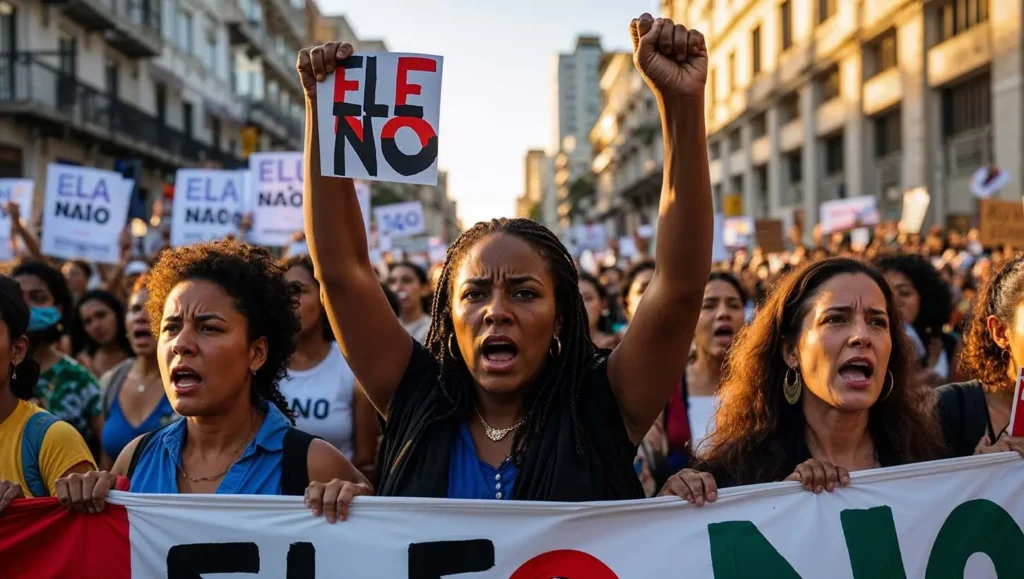
There were people from all walks of life at the protests. Many of them held anti-Bolsonaro signs and yelled, “Not him.” At the protest, Priscila Almeida, who is twenty-five years old, said, “I’m here to fight against homophobia, for Black people, for democracy, and against the oppressor”. People in the opposition movement cared about a lot of different things, not just gender issues. These things included racial justice, LGBTQ+ rights, and democratic values.
A Look Back at Bolsonaro and the Women’s Turndown
Women were mostly against Bolsonaro because of the hurtful things he said about women, racial and sexual minorities, and LGBT people. A study by the Brazilian Institute of Public Opinion found that Bolsonaro had a 50% rejection rate among women.
It turned out that 49% of the voters who were against his candidacy were women. This opposition came about because of certain events that showed how he felt about women and underprivileged groups.
He told Congresswoman Maria do Rosario in 2014, “I would never rape you because you do not deserve it.” This is one of his most famous quotes. In 2003, he said the same thing. Bolsonaro got in trouble with the law for this comment. He was found guilty of moral damage by a lower court in December 2015 and given a fine of about $2,500. Even though Bolsonaro made an appeal, this conviction was upheld by a higher court in August 2017. After that, he went back to the Supreme Court of Brazil and made another case.
In 2017, Bolsonaro, for example, said that having a daughter was a “weakness”. This was just one of many times he said mean things about women and families. People saw him as a candidate whose views were in direct opposition to women’s rights. And equal rights for men and women based on what he said. A coordinated movement of people against him now had a real reason to fight him.
More and more Black women are running for office in Brazil.
One way for women to get into politics was through the movement against Bolsonaro. But since he took office, Black women’s political participation has grown a lot. With 91 female federal deputies elected, the 2022 elections were a big deal for Black women in Brazilian federal politics. In Brazil’s parliament, more Black or brown women have been elected than ever before.
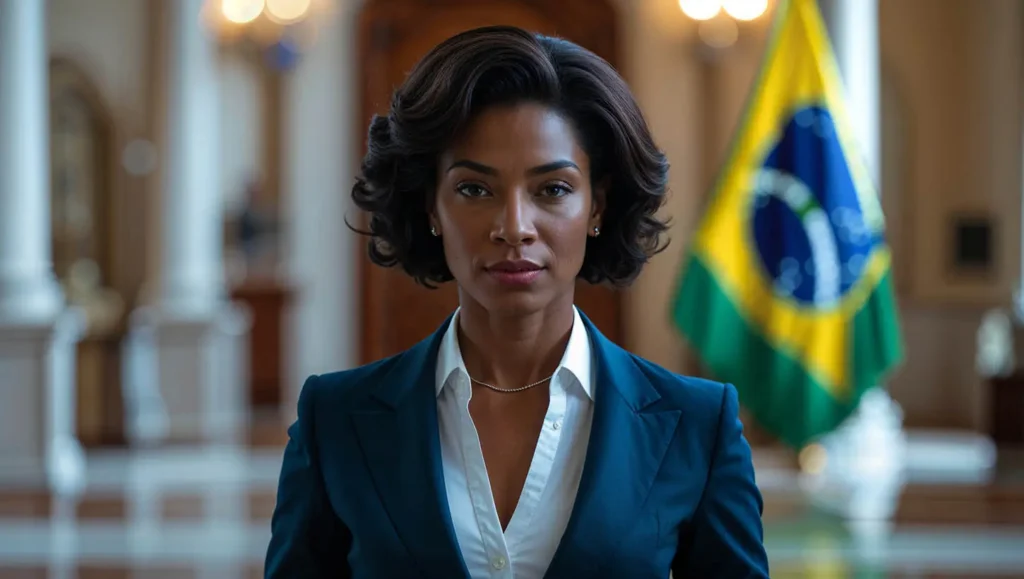
Even though this number breaks all records, the percentage is too low when compared to Brazil’s population. 56% of the people in Brazil say they are Black or brown. So, the 91 Black or brown women in the Brazilian National Congress are only about 8% of the body. The differences between these numbers show how hard it is to get fair representation in Brazilian government institutions.
The rise in participation comes at a time when violence in politics against Black women is a major issue. The National Council of Justice says that about seven cases of political violence against Black women happen in Brazil every thirty days. As of 2021, when it became law, the Federal Public Ministry has kept track of about 112 cases of political violence against women.
Faults in the system and the case of Marielle Franco
The murder of former councilwoman Marielle Franco, which has not been solved, shows how dangerous it is for Black women to work in Brazilian politics. Her case also shows how long Black women who work in politics have to wait for justice. In his fight for the rights of Afro-Brazilian communities and other disadvantaged groups, Franco died in 2018. People still talk about her death as an example of how politics can hurt Black women.
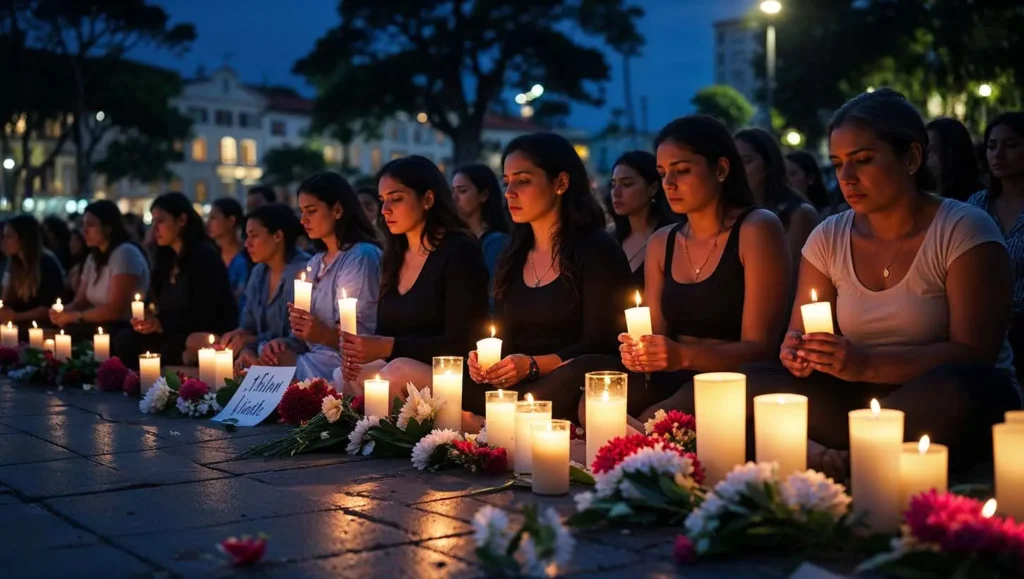
It is “very toxic for women” to work in politics, says Minister Claudia Bucchianeri of the Brazilian Superior Electoral Court. She also said that female politicians are “commonly offended, humiliated, threatened, and disrespected only because they are female”. Things get worse for Black women. There are a lot of risks that many Black women in parliament have to deal with, so they need more personal safety for themselves and their families.
Clara Dartoras is the first Black woman to be elected as a federal deputy for the state of Paraná. For the younger Black women who are running for office, she is a role model who must find a way to serve her constituents’ needs while also keeping their safety in mind. Her election and the elections of her friends show both how far we’ve come and how hard it is for Black women to fully participate in politics.
Problems with democratic institutions and how people are spelled out
The fact that women in Brazil are getting involved in politics shows a bigger problem with democracy and fair representation. 52% of Brazilian voters are women, even though only 13% of the 513 seats in the lower house Chamber of Deputies are held by women. This is on top of the 13 seats in the upper house of the Senate that are held by women. Based on this, Brazil is ranked 156th in the world for the number of women in government.
This structural underrepresentation helps us understand the movement against Bolsonaro and the rise in the number of Black women running for office. These movements are not only against certain politicians but also against systemic barriers that make it hard for people of all races and genders to participate equally in politics.
The online mobilization showed how the political opposition can work together by using digital platforms to give people whose opinions aren’t often heard in politics a place to say them. From digital activism to long-term political change, though, institutions need to change, and people need to be actively involved in politics all the time, not just during election cycles.
External Source: https://www.bbc.com/news/world-latin-america-45579635
The Final Thoughts
The women’s movement against Jair Bolsonaro’s presidential campaign and the rise of Black women in politics in Brazil afterward show how powerful organized opposition can be and how hard it is to be a part of democracy all the time.
Millions of women who joined the #NotHim movement showed how well-coordinated online activity can change the way people talk about politics.
The fact that a record number of Black women chose to run for federal office in 2022 is a clear sign that the government is becoming more representative.
But these successes happen in a world where women are still routinely denied the right to fully participate in politics, where women are still underrepresented compared to the population, and where political violence against women continues.
The case of Marielle Franco and the recent threats made against Black women leaders show how dangerous it can be to question what most people think is right.
By looking at what happened in Brazil, we can learn more about the pros and cons of resistance groups in modern democracies. Organized opposition can get a lot of people to vote and change the outcome of elections, but this energy should be used to make institutional changes that last by fixing deeper structural inequalities and making sure that political participants from disadvantaged areas are safe and have support.
Even though these battles are still going on, the fact that they are still going on shows that the victories are not complete steps toward more fair democratic representation.
